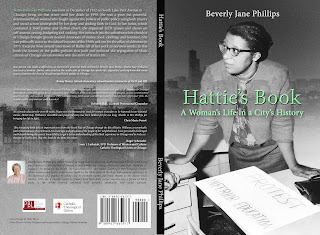Public Speaking as Proclamation of the Word of God
Early in my career,
I hesitated to speak in public—lots of excuses—I didn’t like the residue of my
Southern accent, others could do it better than me. This was true whether I was
asked to be a presenter at a conference or to be a lector at church, reading the scriptures. Over the years,
my outlook on speaking in front of people, has revolutionized based on a few
epiphanic moments. I discovered that when I gave a presentation and thought of
it, and indeed, did “know” that I was proclaiming the word of God, I was fine
and even enjoyed it. How did I come to this?
I started this
movement to proclamation while studying at seminary. The few times I had to
“preside” or give a homily were killers, though I realized the more I believed
in my homily, the better the experience for me. But my first real breakthrough
was when my husband’s dear aunt died—she had been very supportive of my study
at seminary and wanted me to plan and preside at several rites of burial that
are found in the Catholic rituals for the dead. It was hard to lead the family
in the prayers for the Vigil Rite of Gathering in the Presence of the Body; all
Mike’s cousins and family were there and it was my duty to bring them the
comfort of the gospel. But the next morning when I presided at the Vigil Rite
of The Transfer of the Body to the Church, I thought I might die. I looked out
at the congregation gathered at the funeral home, ready to go to the church for
the Funeral Mass and realized there were folks who were not Catholic, indeed,
not even Christian, and I was there to proclaim the good news that Aunt
Rosemary had believed in her long life. Not that I intended to proselytize at
all, no, just to witness to what she believed in the core of her being. Though
I wanted to cry at several points, I kept reminding myself that I need to be a
strong voice for proclamation of her beliefs. After that, I did agree to be a lector
occasionally and it was easy to apply the same principle.
Soon after that, I
returned to academic librarianship and began teaching undergraduate students
how to use the resources my institution offered and to do appropriate research.
That was something I believed in wholeheartedly and this kind of speaking was entirely
natural to me. Over the years, I developed research interests that I knew I
wanted to speak about. It was a blessing for me when this coincided with my
move to CTU. One reason I expressed for my desire to be the librarian at CTU
was because I felt it gave me a platform that came with respect for me to
pursue these ideas.
My first
opportunity was a wonderful invitation to speak to the Fellowship of Christian
Librarians and Information Scientists (FOCLIS) at the American Library
Association annual conference. I was speaking about being a theological librarian
and how I felt God had called me to a vocation to this profession. Now I believe
this firmly, but I was still worried I would be nervous, but to my surprise I
started and felt very comfortable—after so many years, another major
breakthrough or epiphany. The firm belief in what I had to say gave me the
grace to do this. (A version adapted for print can be found in Theological
Librarianship 3, no. 1 (2010).
However, the really
big breakthrough came quickly after that—my research on scholarly
sustainability had become very important to me and I submitted a proposal to
present a paper on this topic at the annual conference of the American Theological
Library Association. Another epiphanic moment—speaking about scholarly
sustainability was actually proclaiming the word of God! I finally got it that
anything I talked about that I believed would help bring about the reign of God
was a proclamation of the word of God. All my work as a librarian has been
meant to help others (and myself) become the Imago Dei—no matter how esoteric,
then, my speaking on it is a proclamation of the gospel.
In my FOCLIS
presentation, I quoted my colleague, Dianne Bergant, who says in a Scripture
Reflection from CTU, July 2009 (these do not seem to be currently available on
the new CTU website or I would link to it.):
Today’s readings insist that God has indeed called all of us to prophesy to his people. This might startle us. Us, prophets? After all, we are just simple people, engaged in ordinary occupations.She goes on to say,
Christians today are mechanics and clerks, teachers and engineers, doctors and housekeepers, politicians and train conductors. Few of them are asked to leave their ordinary trades or professions, for it is precisely within those trades or professions that they fulfill their calling. It is there that they touch minds and hearts and souls with the tenderness of God; and it is there that they heal the people whom they touch. It is there that they instruct and comfort people in need.
I feel sure she
means to tie the two together: that in our work we are called to prophecy and
proclaim the good news. If you find that you are called to be an accountant or
a plumber, then when you talk about your work, you should be proclaiming the
good news! If you believe that you image God in your creative
pursuits—needlework, music, photography—then your work and your discussion of
it is a proclamation of the gospel and you should claim your authority to
proclaim the good news!



Comments
Post a Comment